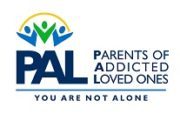Forgiveness is a word that carries a great deal of weight to it, especially if you are a parent of an addicted loved one. Some questions that may cross a parent’s mind include: Am I obligated to forgive? Does forgiveness mean I forget what he or she did? Is forgiveness equivalent to restoration? What if I don’t feel forgiving toward my addicted loved one? All of these questions are important and valuable. Forgiveness is multifaceted and understanding what it means, especially in the context of addiction, is essential.
Let’s begin by defining forgiveness and getting a clear picture of what it actually means. In the dictionary, forgiveness is defined as “granting a pardon for or remission of (an offense, debt, etc.), to absolve, to cease to feel resentment against, to cancel indebtedness or liability of, and to pardon an offense or an offender.” There is only a need for forgiveness if there is an action or behavior that requires a pardon. For parents of addicted loved ones, this may equate to a long list of offenses, over several years, with incredible hurt. The pain may seem never-ending and unbearable at times. For some parents of addicted loved ones, they will have the opportunity to hear an apology from their child; an attempt at amends. For others, this amends may never come and parents will need to grieve over the loss of this prospect. It is important to understand that forgiveness happens inside our hearts and minds and what happens to the people we forgive depends entirely on them. It is a journey, and the deeper the wound, the longer this journey can take.
So if forgiveness means to give a pardon, there are also aspects that are not equivalent to the true meaning of forgiveness. For one, forgiveness does not eradicate negative consequences or excuse hurtful actions. The offender will still experience the consequences that result from their behavior. Forgiveness does not mean letting go of justice or the desire for it, but it does mean we are letting go of our right to hurt another person for hurting us. It also does not mean we allow the offender to have free reign to hurt us again. That would be a travesty for the concept of forgiveness. Instead, it is important to evaluate healthy boundaries within that relationship after an offense is identified and forgiveness is granted.
So what exactly does the process of forgiveness look like? Here are a few steps to consider if you are working toward forgiveness:
- Identify and name the offense(s). Forgiveness is null if we cannot call out the action or behavior that has offended or hurt us. It is common, and often easy, for parents of addicted loved ones to minimize or even deny the wrongdoing their child committed. This will impede the complete process of forgiveness and can keep us stuck. Get as specific as you can and also consider writing it out so that you can see clearly what you consider the offense(s) to be.
- Determine healthy boundaries. This is an important aspect to consider before forgiving. Forgiveness is given fully when it is given freely, without fear of re-victimization.
- Let go of your right to hurt the person who hurt you. This is part of a spiritual practice of surrendering your need for justice to your Higher Power.
- Acknowledge the humanity of the offender. This part of the process is about recognizing that the person who offended is human and observing him or her through a lens of compassion. Pia Mellody describes the concept of our humanity being tied to having weaknesses and strengths rather than being tied to our worth. Our offender has both weaknesses and strengths, just like us. They can offend just as much as we have the potential to offend. The piece that puts us all on level ground is our humanity.
- Bestowing forgiveness and grace. When boundaries have been established and safety is experienced, grace can be given freely. It is important to note here that though reconciliation is always a desired outcome of forgiveness, it may not be healthy or constructive in some circumstances. If there is a lack of repentance from the offender, the relationship may not be restored.
Forgiveness is a journey that allows us to heal wounds and pain, but it is not easy. It takes a great deal of reflection, honesty and tolerating uncomfortable emotions. The path of forgiveness may be arduous, but when taken intentionally, it can breathe life back into us. My hope is that these steps will give you clarity and an action plan you can implement with any offender who may cross your path. We are all doing this hard work together.
Grace & peace,
Ashley
Ashley Worthington, MA, LAC, is a guest blogger
for PAL and works with Living Hope Counseling

Comments are closed.